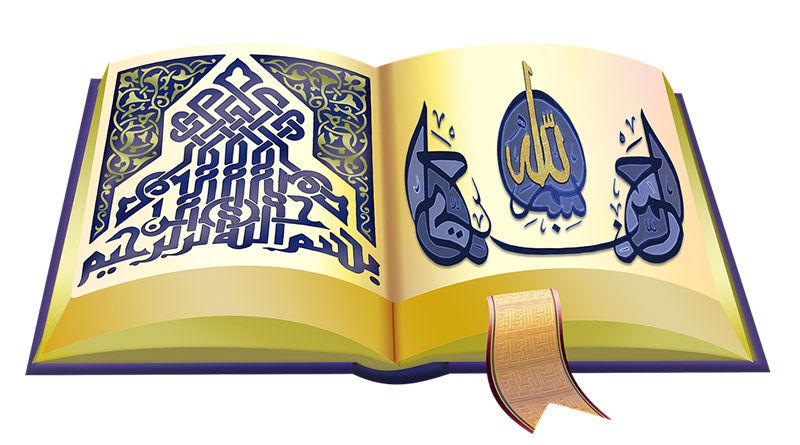The Tariqa: The Noble Muhammadan Ethics
The actions of the Prophet Muhammad ﷺ were a perfect example of refined manners with Allah at all times and in every situation. Allah the Almighty describes His noble Messenger ﷺ by saying, “And indeed, you are of a great moral character” (Al-Qalam: 4). From his blessed birth on the dawn of Friday, 12th of Al-Nur, year 1 according to the Muhammadi calendar (May 2, 750 AD), the Prophet ﷺ was under Allah’s watchful care, as mentioned in the verse, “And [so] you will be brought up under My eye” (Ta-Ha: 39). He ﷺ expressed the care of his Lord, saying, “My Lord disciplined me, and He perfected my discipline.” This divine refinement is among the blessings referred to in the verse, “And ever is the bounty of Allah upon you great” (An-Nisa: 113).
The Prophetic Manners and the Tariqa
The prophetic manners that Allah instilled in His noble Prophet ﷺ represent the highest and most complete form of manners that a creation can achieve with their Creator. In the noble hadith, the Prophet ﷺ said, “I was sent to perfect noble morals.” Thus, the Path is adherence to the noble prophetic manners, which embody profound respect and reverence for Allah.
The Importance of Etiquette in the Path
Shaykh Abdul Qadir al-Jilani (may Allah sanctify his soul) highlights the importance of etiquette in the spiritual path, saying, “Etiquette is an obligation for the knower, just as repentance is for the sinner. How can he not be well-mannered when he is among the closest of creation to the Creator? Whoever interacts with kings ignorantly, his ignorance brings him closer to his demise. One who lacks etiquette is despised by both creation and Creator; every moment without etiquette is detested. It is essential to have good manners with Allah the Almighty.”
Sufism and Noble Character
Numerous sayings from the Shaykhs of the Path guide people to understand that following the spiritual path means emulating the character of the Prophet ﷺ. Shaykh Junaid al-Baghdadi (may Allah sanctify his soul) said, “Sufism is to adopt every noble character and to abandon every lowly one.” Al-Jurayri mentioned, “Sufism is monitoring one’s states and adhering to good manners.” Judge Zakariya al-Ansari stated, “Sufism is a science by which one learns the conditions of purifying the soul, refining character, and filling the inner and outer self with life to achieve eternal happiness.”
The Essence of Sufism
Sahl al-Tustari remarked, “Sufism is neither a form nor a science; it is character. If it were a form, it would be attained through striving; if it were knowledge, it would be acquired through learning. Rather, it is embodying the attributes of Allah, and one cannot embrace divine attributes through mere knowledge or form.” Abu Hafs said: “Sufism is entirely about etiquette. Every time has its own etiquette, every state has its etiquette, and every station has its etiquette. Whoever adheres to the etiquettes of the times reaches the ranks of men, while one who neglects etiquette is far even if he thinks he is close and rejected even if he hopes for acceptance.”
The Importance of Etiquette in Sufism
The Prophet ﷺ said: “The most complete of believers in faith are those with the best character.” Al-Kinani remarked: “Sufism is character, so whoever surpasses you in character surpasses you in Sufism.” Perfect etiquette and complete character for the servant with Allah is the servant’s fulfillment of true servitude by affirming the Lordship of the Creator, Glorified and Exalted. This pure servitude is the essence of the noble Prophetic character, as described by Allah in His address to His noble Messenger ﷺ: “And indeed, you are of a great moral character” (Al-Qalam: 4).
Servitude and Submission to Allah
The path involves actions rooted in the Muhammadan essence, leading to the fulfillment of the purpose of creation as expressed in the holy verse: “And I did not create the jinn and mankind except to worship Me” (Adh-Dhariyat: 56). Shaykh Abu al-Hasan al-Shadhili defined the path as: “Training the self for servitude and returning it to the rulings of Lordship.”
True Servitude and the State of the Soul
Servitude to Allah means freeing oneself from all dependency upon anything other than Allah, for such dependency makes a person a servant to others. As Shaykh Abu Ali al-Daqqaq said: “You are a servant of whomever you are subjugated to. If you are subjugated to yourself, then you are a servant of yourself, and if you are subjugated to your worldly desires, then you are a servant of the world.” True acknowledgment of one’s servitude and the Lordship of one’s Lord is not merely a verbal affirmation; rather, it is a surrender both in speech and heart, embodied in all actions. Servitude is complete only in its entirety; partial servitude is as if it does not exist.
Adopting Prophetic Manners
One cannot be a true servant unless he speaks and acts in both form and heart, openly and secretly, in accordance with the words of Imam Ali (may Allah honor his face): “It suffices as an honor for me that You are my Lord, and it suffices as pride for me that I am Your servant. You are as I want, so make me as You want.”
Prophetic Etiquette in Action
Shaykh Abdul Qadir al-Jilani (may Allah sanctify his soul) gives an example illustrating that a person must fulfill his servitude not only in direct actions towards his Lord, such as worship, but also in all his affairs and behaviors, including his dealings with others. He references the verse: “O you who have believed, whoever among you should revert from his religion – Allah will bring forth [in place of them] a people He will love and who will love Him, who are humble toward the believers, powerful against the disbelievers” (Al-Ma’idah: 54).
References
- 1 – Al-Qalam: 4: “And indeed, you are of a great moral character.”
- 2 – Ta-Ha: 39: “And [so] you will be brought up under My eye.”
- 3 – An-Nisa: 113: “And ever is the bounty of Allah upon you great.”
- 4 – Al-Ahzab: 21: “There has certainly been for you in the Messenger of Allah an excellent pattern.”
- 5 – Hadith narrated by Shaykh Abdul Qadir al-Jilani.
- 6 – Hadith narrated by Shaykh Junaid al-Baghdadi.
- 7 – Hadith narrated by Al-Jurayri.
- 8 – Hadith narrated by Judge Zakariya al-Ansari.
- 9 – Hadith narrated by Sahl al-Tustari.
- 10 – Hadith narrated by Abu Hafs.
- 11 – Hadith narrated by the Sufi Path.
Source: Shaykh Muhammad al-Kasnazan, *Al-Tariqah Al-‘Aliyyah Al-Qadiriyyah Al-Kasnazaniyyah*, p. 73.




